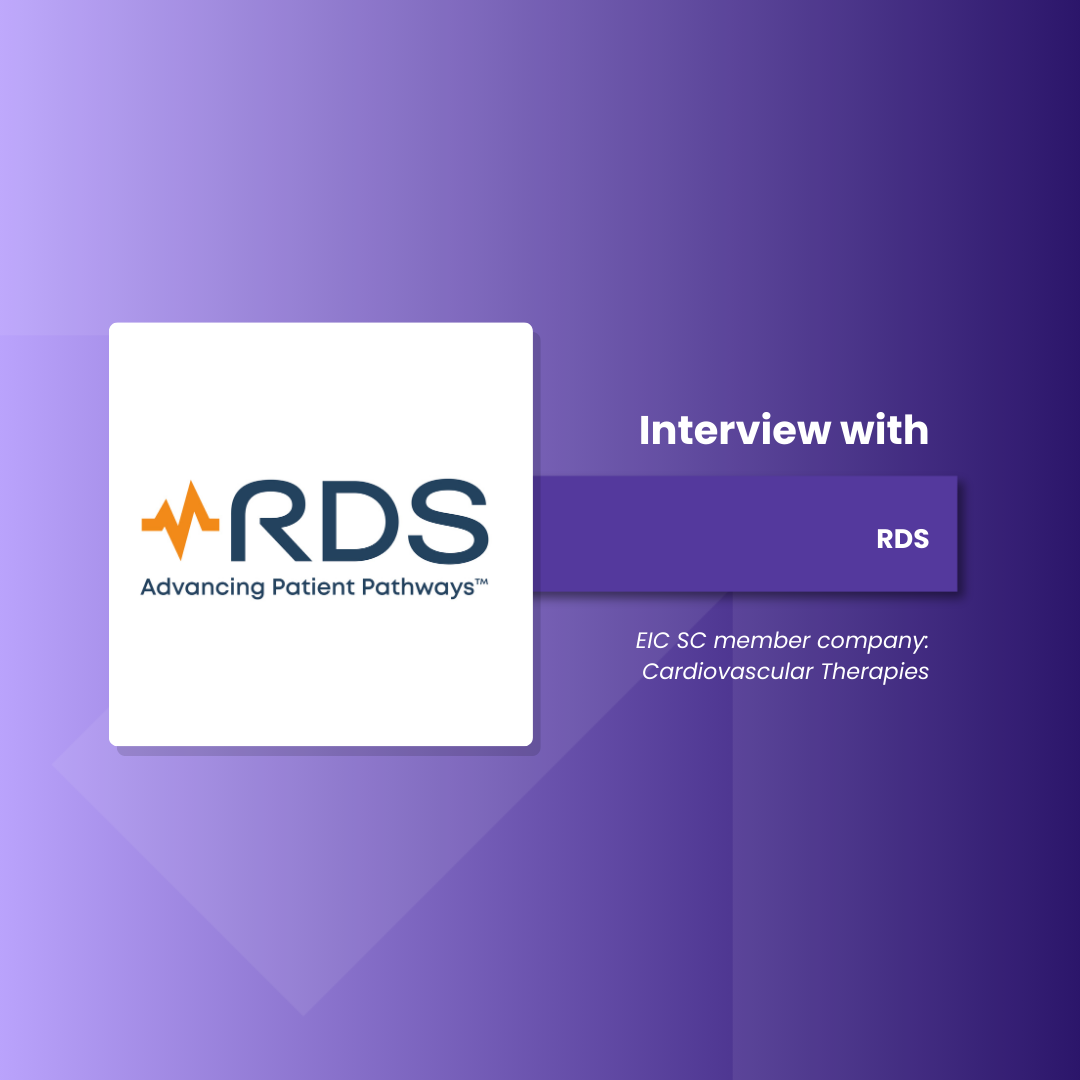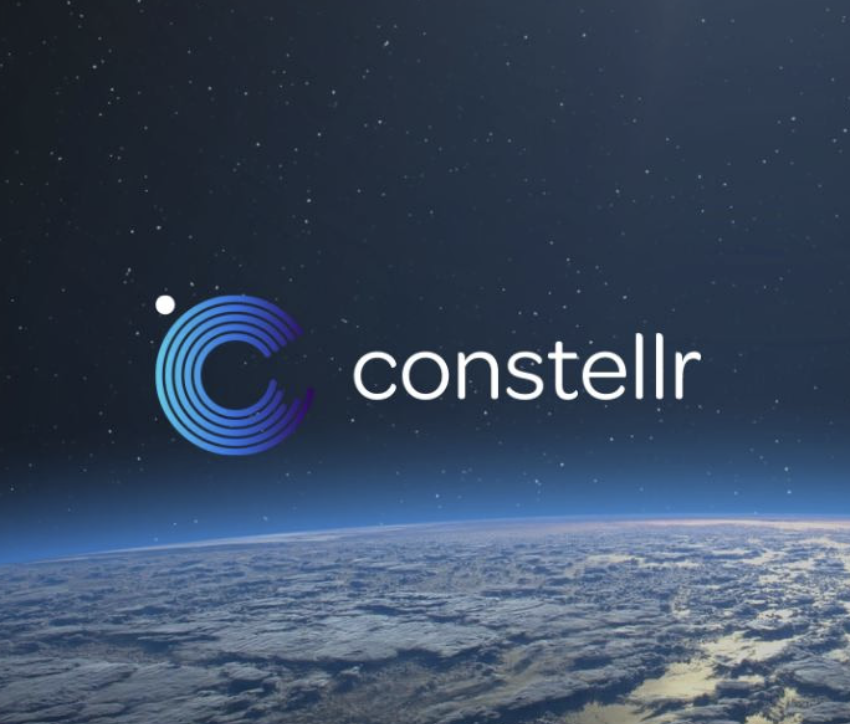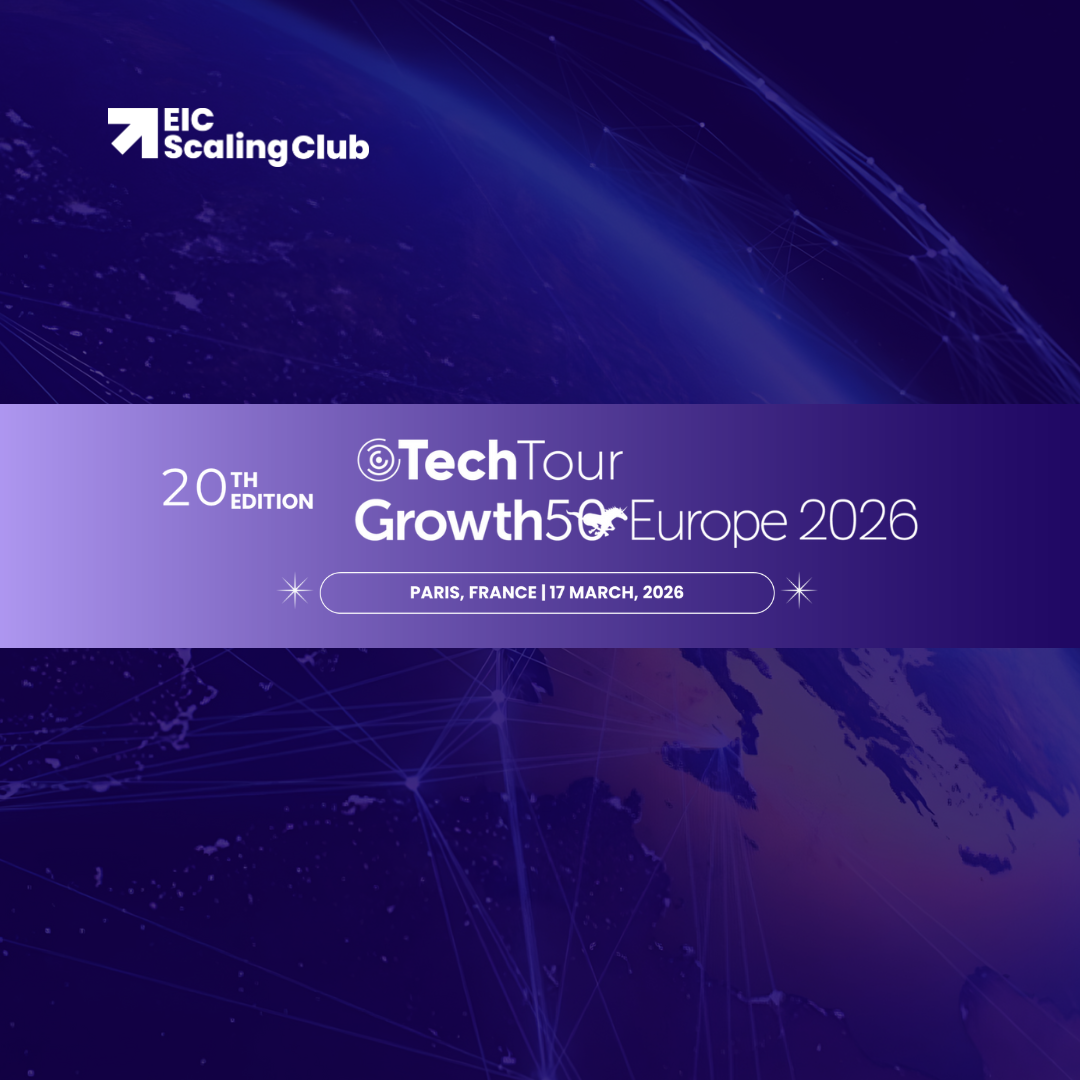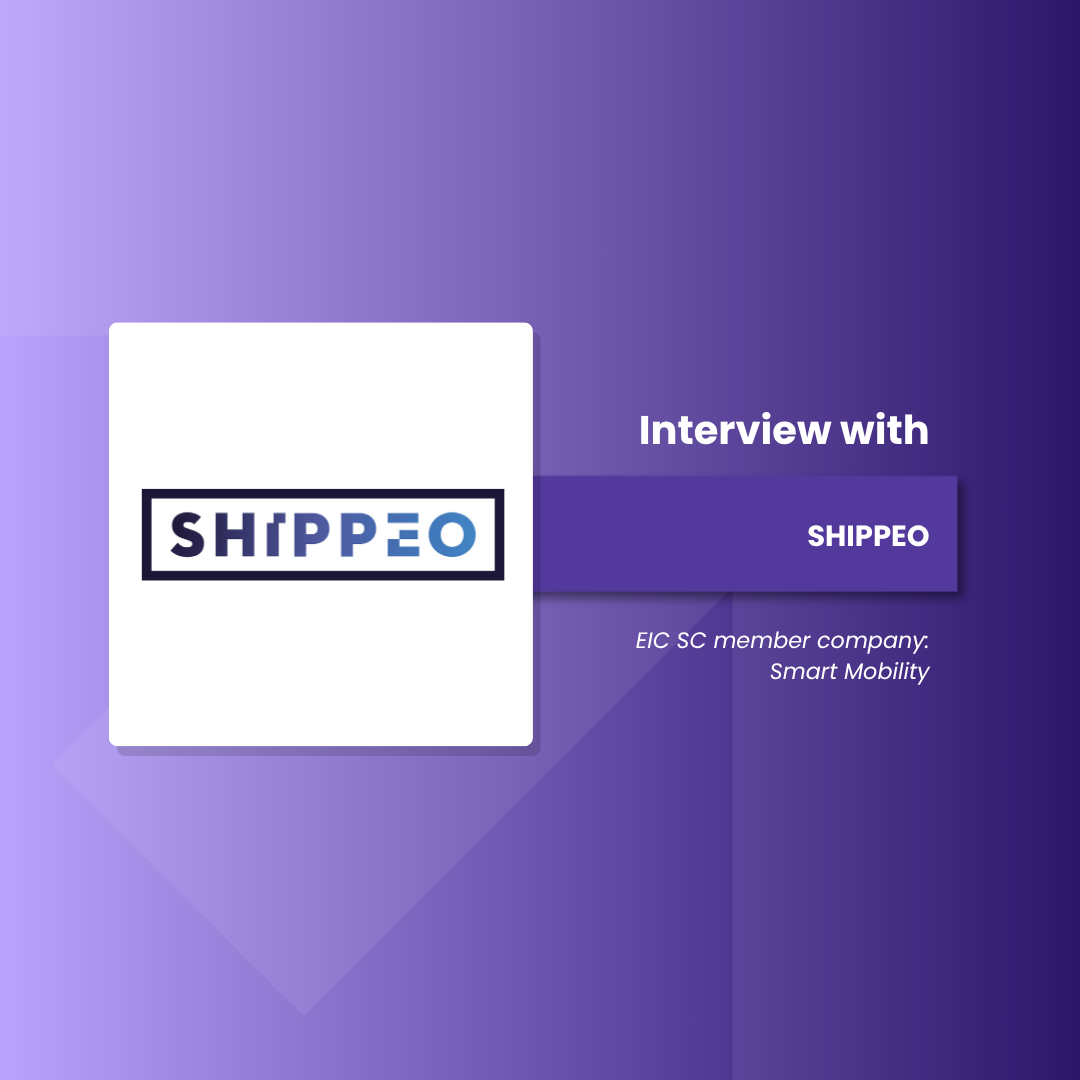17 Feb 2026

Recently, the EIC Scaling Club released six new “Challenge Roadmaps” reports, rounding out the series. These reports analyse the hurdles deep tech ventures face during their growth journey – from commercialising their innovation and growing the business to ensuring attracting investment and contributing to the ecosystem.
Specifically, the reports address 10 critical challenges, with each report titled respectively – “Go-To-Market Strategy”, “Strong Board”, “Investment Thesis”, “Lead Investor”, “Corporate Partnerships”, “Leadership and Talent Development”, “Gender and Diversity Balance”, “European and Institutional Partnerships”, “Building an Ecosystem”, and “Policy and Regulatory Framework”.
These reports are intended for Europe’s deep tech ecosystem participants, namely, startups, mentors, and experts, and offer a unique snapshot of the state of the industry, while also providing actionable insights. Each report showcases three central things about its respective topic: the most relevant related actions, the shift in priorities comparing the last 12 months vs the next 12 months, and any misalignments on vision between stakeholders and companies.
6 newly released Challenge Roadmaps
Corporate Partnerships
Corporate partnerships enable firms to collaborate by pooling resources, sharing risks, and co-developing opportunities, typically formalized through agreements that outline shared goals and governance structures. While 95% of startups express interest in forming partnerships with corporations, only 57% succeed.
This report sheds on how European deep tech companies can better develop corporate partnerships – read more.
Leadership and Talent Development
Leadership encompasses the ability to guide, influence, and inspire others toward achieving shared goals, while talent development focuses on enhancing the skills, abilities, and potential of individuals within an organization. Yet, nearly 70% of EU deep tech startups face talent scarcity when hiring engineers with experience in scaling deep tech ventures, according to a Sifted piece.
This report explores how European deep tech companies can design more effective leadership and talent development strategies – read more.
Gender and Diversity Balance
A gender and diversity balance strategy recognizes and promotes the different backgrounds and talents of the team members at organizations to improve their overall performance, united around a common purpose. Considering that gender is only one dimension of diversity, women constitute merely 17% of the tech workforce in Europe and just 5% in leadership roles, as reported by McKinsey piece.
This new report provides insights into how European deep tech companies can improve their gender and diversity balance – read more.
European and Institutional Partnerships
European and institutional partnerships for deep tech scale-ups refers to structured collaborations with European bodies, academic institutions, research organizations, and industry stakeholders for accessing markets, resources, growth, and innovation. Yet, over 60% of European small and medium enterprises struggle to secure EU public funding due to extensive administrative requirements, according to The Future of European Competitiveness piece.
This report sheds light on how European deep tech companies can better leverage their EU institutional partnerships – read more.
Building an Ecosystem
Building an ecosystem involves creating a supportive environment that fosters innovation, collaboration, and growth among stakeholders such as startups, established companies, investors, academic institutions, and government bodies. However, only 30% of European deep tech startups successfully scale due to limited ecosystem support, particularly in accessing industry connections and funding, according to a recent McKinsey article.
This report explores how European deep tech companies can build a strong ecosystem – read more.
Policy and Regulatory Framework
A policy and regulation framework for scale-ups sets legal guidelines that help firms operate responsibly within legal constraints, particularly in regulated sectors. Although it is crucial for companies, 50% of European deep tech startups experience delays in product development due to stringent regulations, with compliance costs consuming up to 20-30% of their operational budgets.
This report sheds light on how European deep tech companies can better refine their policy and regulation framework strategy – read more.
4 previously released Challenge Roadmaps
To refresh your memory, we’ve also prepared summaries of the four previously published Challenge Roadmaps.
Go-To-Market Strategy
Go-to-market refers to the strategy employed by a company to bring a product or service to market and reach its target customers effectively. Although it is crucial for companies, only 29% of top executives believe their organizations implement it effectively, according to a recent Harvard Business Review piece.
This report sheds light on how European deep tech companies can better craft this strategy – read more.
Strong Board
A board refers to a group of individuals appointed to oversee the activities and governance of an organization. However, only 40% of European deep tech companies had non-executive directors on their boards, suggesting that at least 60% might not have formal boards. Moreover, only 35% of executives believe their boards effectively contribute to growth, according to a recent BCG piece.
This report sheds light on how European deep tech companies can better leverage a strong and productive board – read more.
Investment Thesis
An investment thesis outlines the underlying assumptions, anticipated risks, and expected returns associated with an investment, providing a strategic framework for evaluating the investment's potential performance. Although it is crucial for companies seeking investors, only 10-20% of firms participating in major pitching competitions secure funding due to weak or confusing investment theses, according to a recent BCG survey.
This report sheds light on how European deep tech companies can better craft a compelling investment narrative – read more.
Lead Investor
A lead investor typically conducts thorough due diligence, sets the valuation, and acts as a representative for other investors in the syndicate. Although it is critical for European deep tech scale-ups, around 60% to 70% of them face difficulties or fail in securing a lead investor according to a recent BCG piece.
This report sheds light on how these companies can better attract funding from a lead investor – read more.
On the methodology
In putting these reports together, the research team conducted literature reviews, interviews, onsite and online workshops, surveys, and more. Each report featured an in-depth interview with at least 3 experts. For the workshops and survey, the participating number of experts ranged from 26 to 61 depending on the topic, encompassing scale-ups, investors, corporations, media, policymakers, and mentors, ensuring a well-rounded perspective. You’ll find an in-depth breakdown of the methodology in each report.
More scaling and ecosystem insights
You can find and read all EIC Scaling Club reports here. Beyond Challenge Roadmaps, you’ll also find two more series of reports – Market Roadmaps and Market Highlights.
Market Roadmaps cover each of EIC Scaling Club’s 10 focus sectors to help professionals – especially entrepreneurs – grasp meaningful insights about the state of industry to build their scaling strategy. Read an overview here.
Market Highlights aim to showcase the Club Members in various market opportunities, as well as to provide an overview of the industry and Members' role within it. Read the reports for each market here.
About the EIC Scaling Club
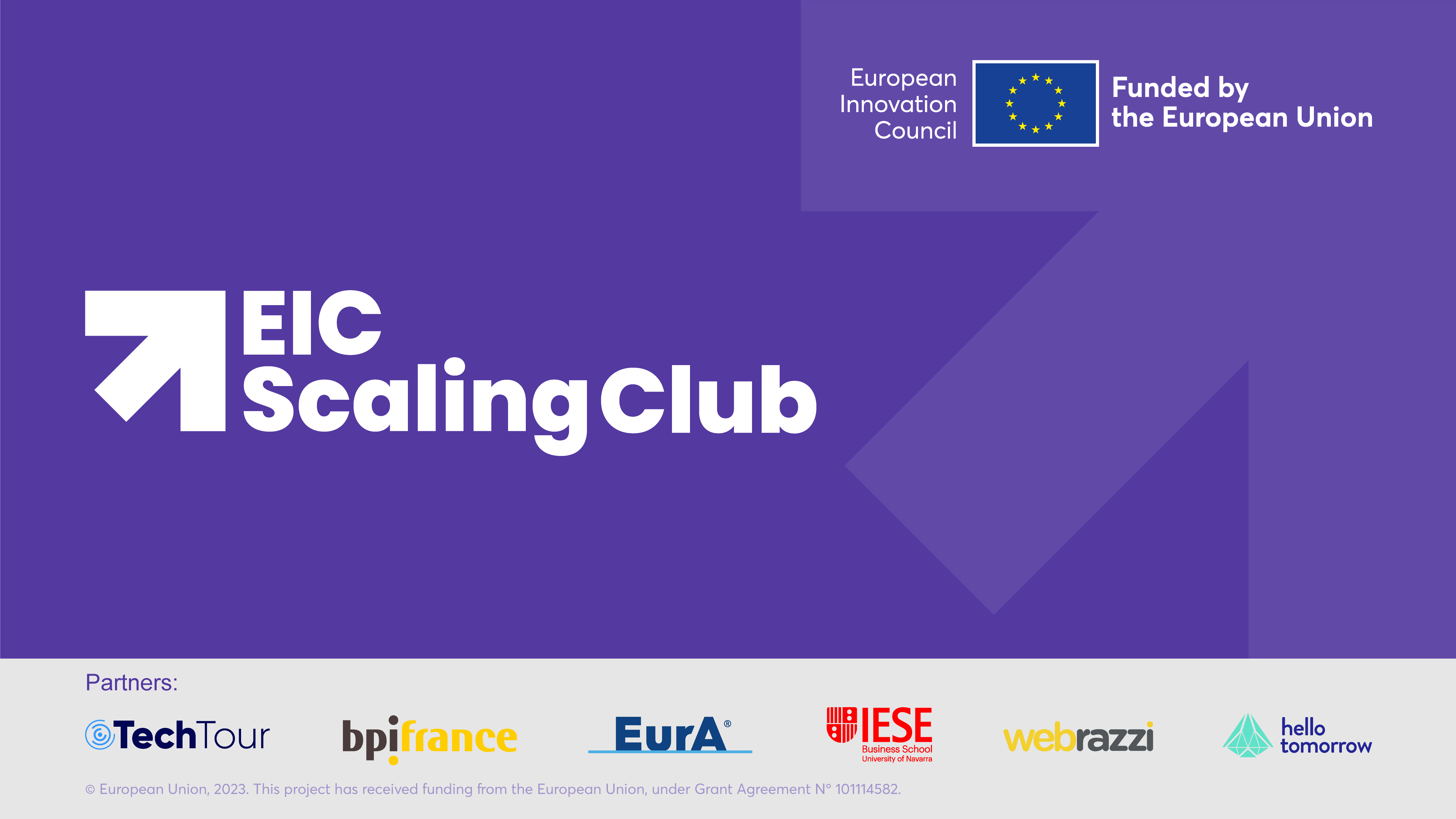
The EIC Scaling Club is a curated community where 120+ European deep tech scale-ups with the potential to build world-class businesses and solve major global challenges come together with investors, corporate innovators and other industry stakeholders to spur growth.
The top 120+ European deep tech companies will be carefully selected from a pool of high-growth scale-ups that have benefitted from EIC financial schemes, other European and national innovation programmes, and beyond.
The EIC Scaling Club is an EIC-funded initiative implemented by Tech Tour, Bpifrance (EuroQuity), Hello Tomorrow, Tech.eu (Webrazzi), EurA and IESE Business School.
Subscribe to our newsletter here to stay up-to-date!
Related Articles
Recent Articles
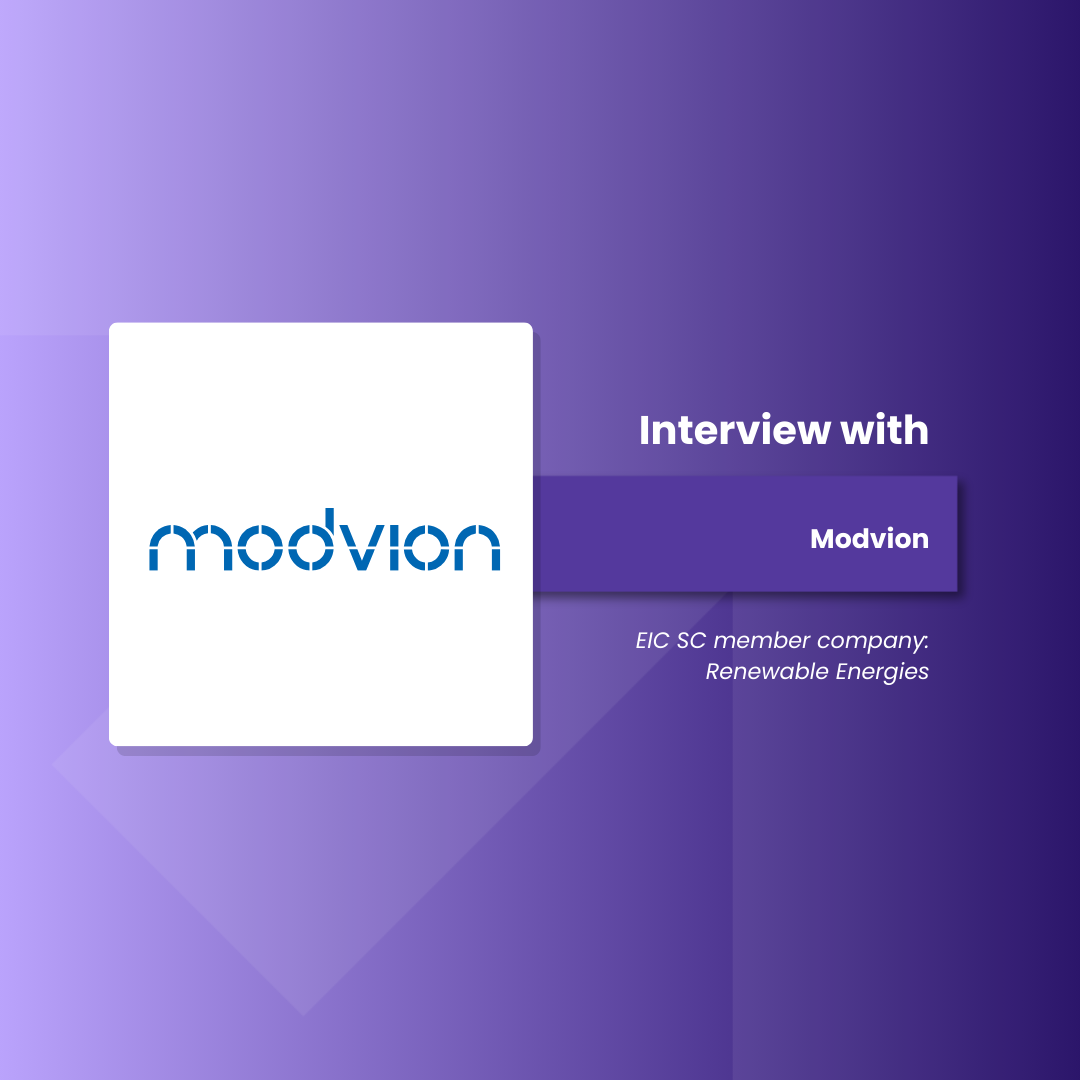
Modvion: Reaching new heights with wooden wind towers
2 Feb 2026
